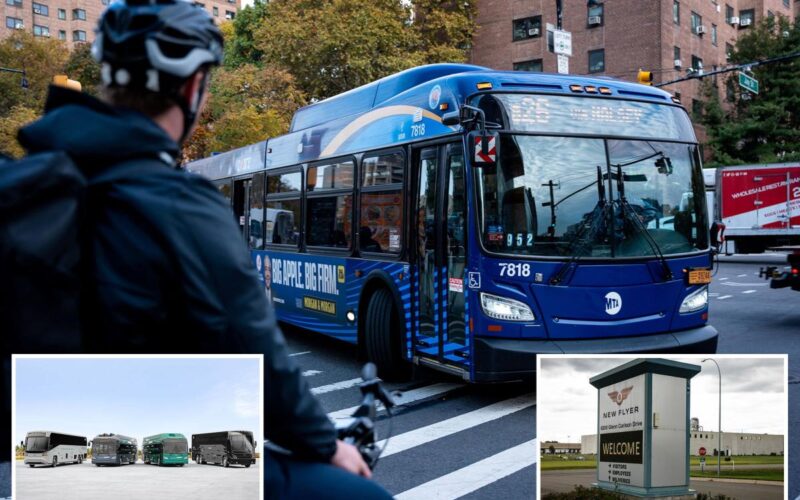The MTA greenlighted a jaw-dropping $257 million for more than 200 new buses Wednesday — handing over the keys without soliciting bids from competitors.
The MTA Board unanimously approved the lucrative, non-competitive contract to purchase 219 new buses from New Flyer of America at a November board meeting.
“These buses will replace buses that are beyond their 12-year service life and will be assigned to depots in Brooklyn, Queens and Staten Island and are necessary to support the network redesigns,” Tim Mulligan, MTA’s chief of rolling stock, said.
The new buses will begin to be delivered in the spring of 2027, according to the MTA.
The approval from the spendthrift agency comes on top of more than $336 million the MTA already spent with New Flyer of America for 449 buses since 2019.
MTA records show the agency has now expanded the deal to three times its original value, as modification after modification piles on.
New Flyer’s latest per-bus price, around $1.26 million for hybrids and $905,000 for diesels, is justified by MTA’s procurement bosses as “fair and reasonable” — though the agency’s analysis was based on vendor-supplied cost numbers rather than public bidding.
“There are no alternatives,” procurement officials wrote flatly.
MTA’s ongoing practice of contract modifications rather than open rebids results in less competition and sometimes pricier deals. For example, New Flyer has increased its per-bus cost to about $787,000 for each hybrid bus.
During the November board meeting, MTA heads also approved a five-year, $40 million noncompetitive contract to Clever Devices for maintenance of software and hardware that supports a new bus radio system and parts of the fare payment software used on buses.
The contract award followed internal negotiations that trimmed nearly half a million dollars off Clever Devices original proposal but did not include a process to solicit proposals from other vendors.
The previous board meeting a month before, the MTA approved more than a billion dollars in noncompetitive spending.
The MTA Board voted to award a $1.5 billion non-competitive contract to Kawasaki Rail Car in October to purchase 378 new R268 subway cars for New York City Transit. MTA got around a competitive bid process for that contract by claiming it would “delay the delivery of the cars” and they needed Kawasaki’s specific design and manufacturing capabilities for the cars.
Marco Carrión, president of the Consortium for Worker Education, showed up to November’s board meeting to complain about the unchecked contract.
“This non-competitive award seems to have been decided with minimal transparency,” Carrión said. “Only vendors and vigilant eyes would have noticed the contract advertised in September and heard about the award at the October board meeting.”








